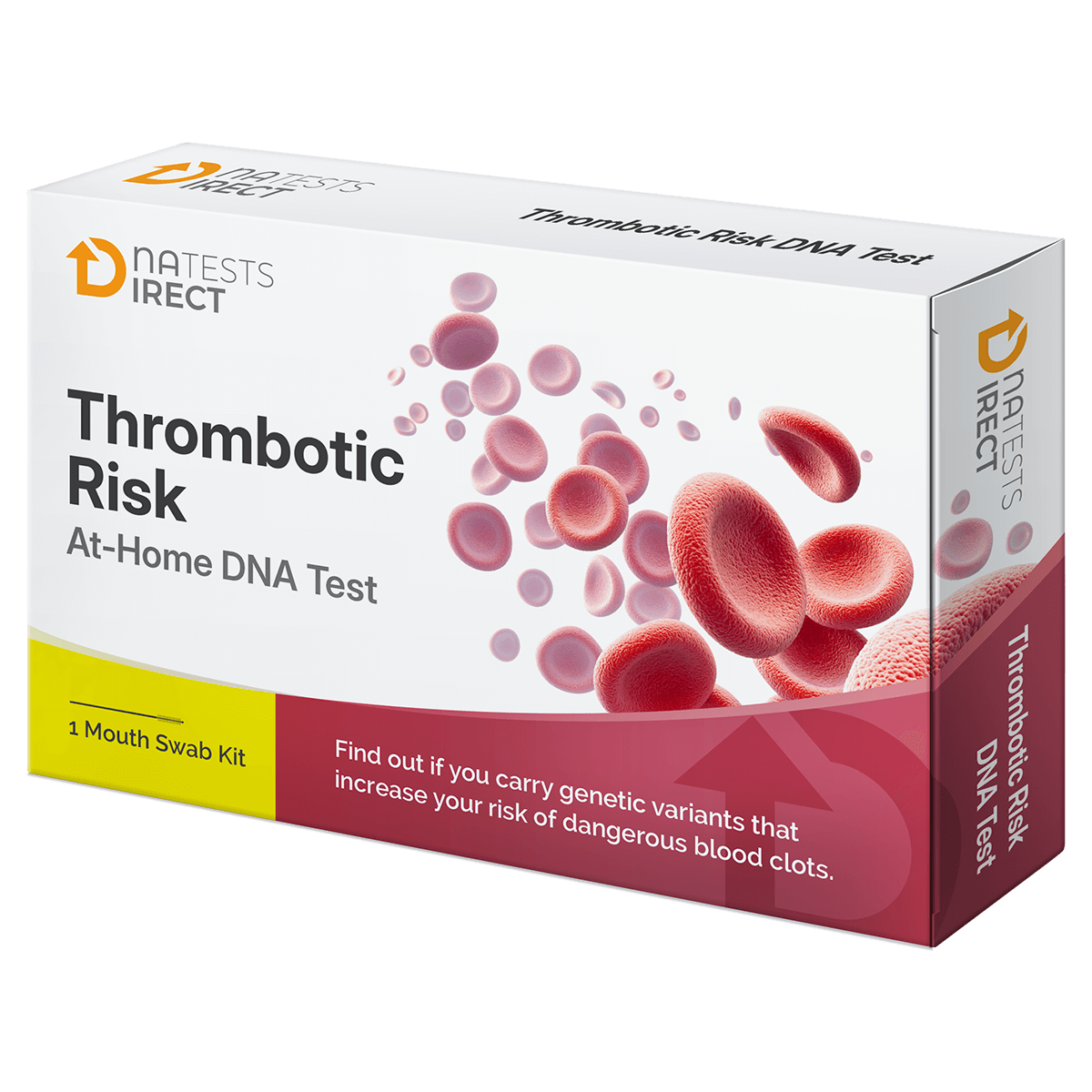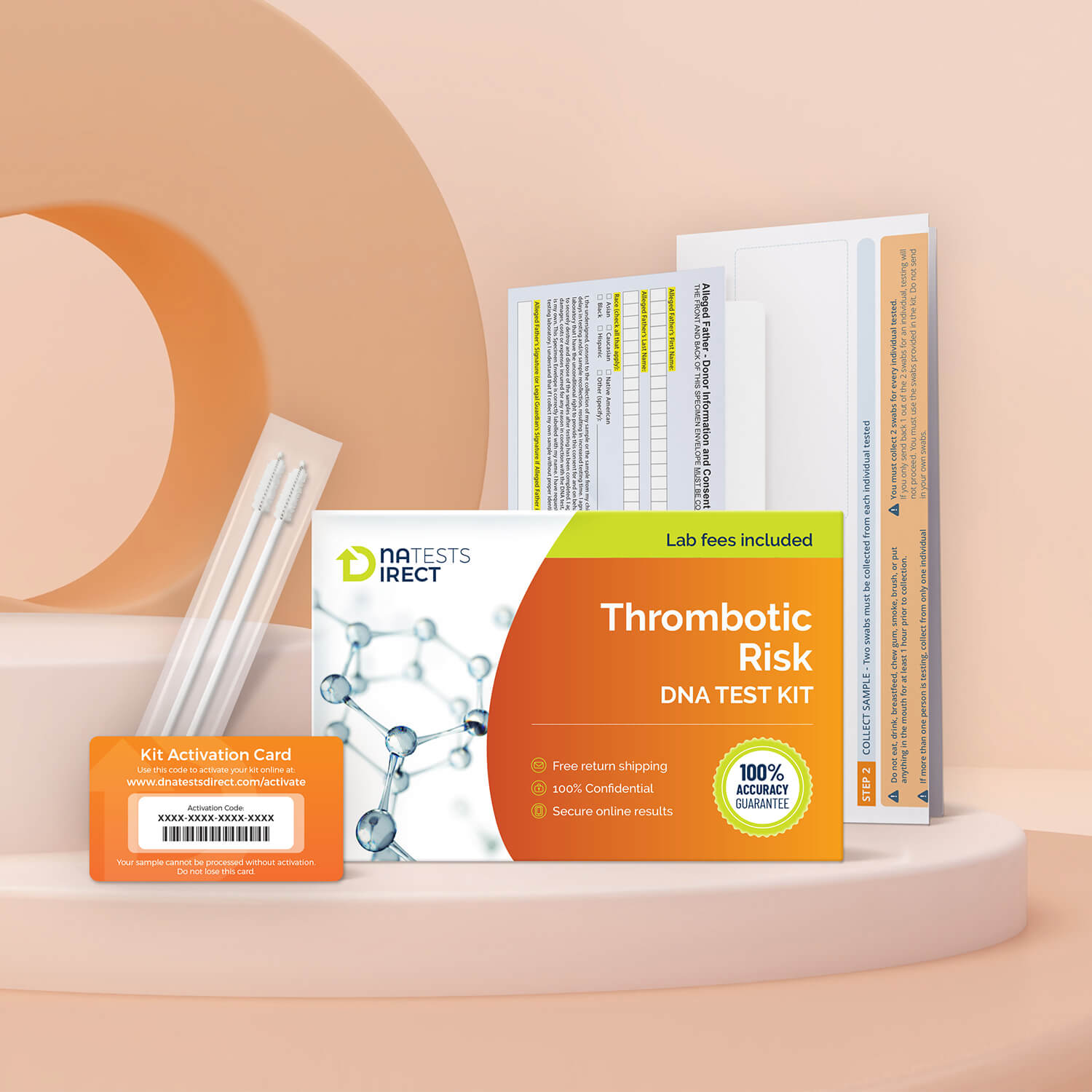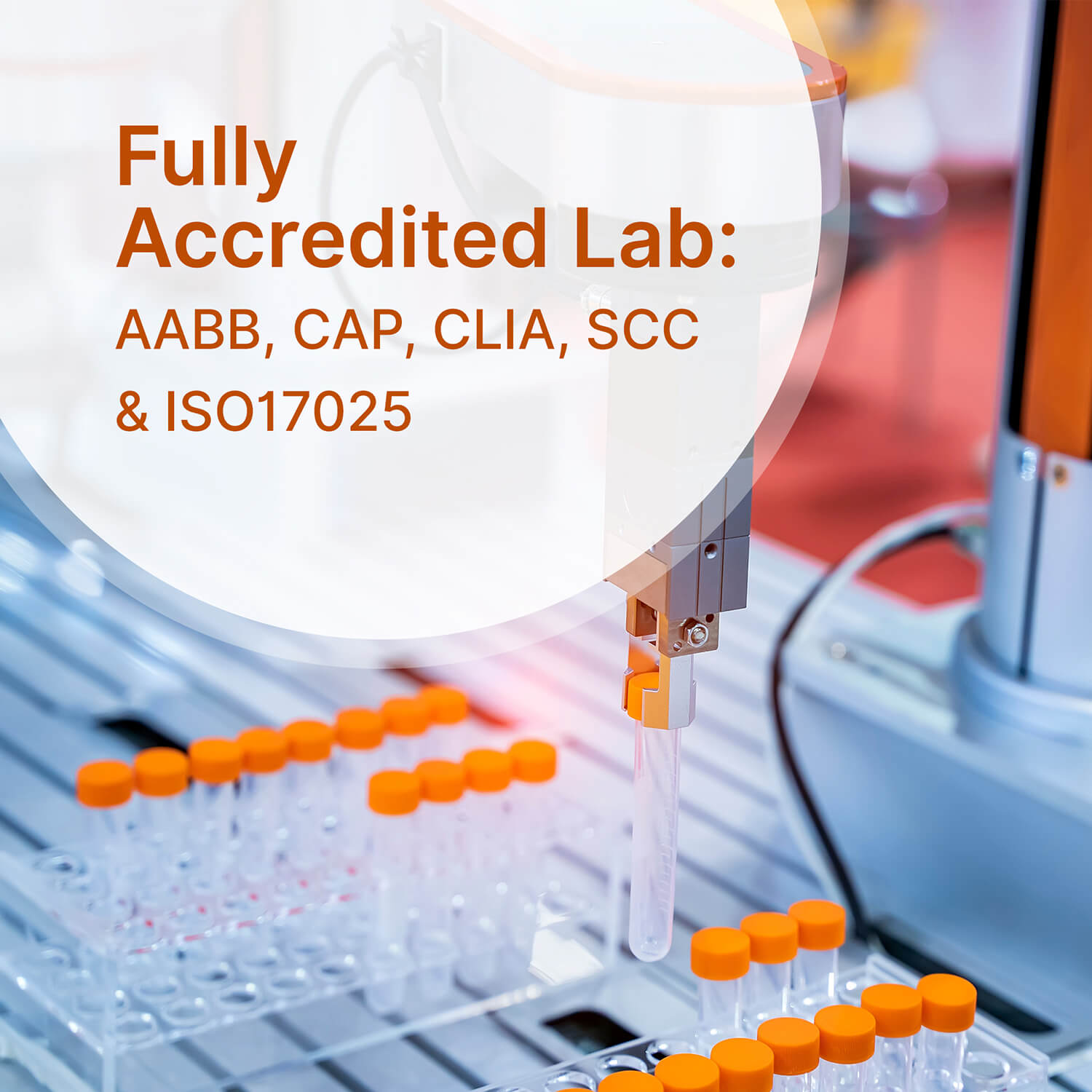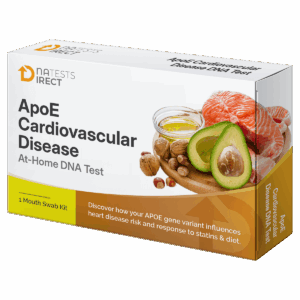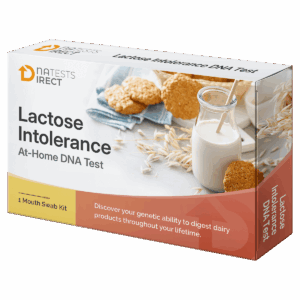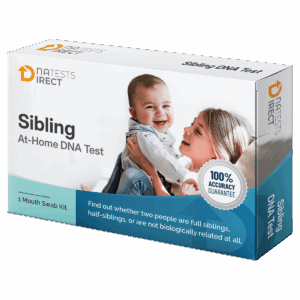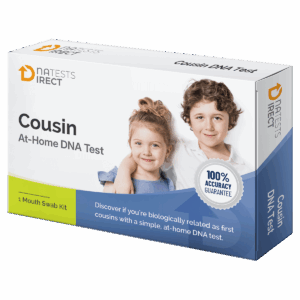DNA Thrombotic Risk
CA$195
What is thrombosis?
Thrombosis is when a blood clot forms inside a blood vessel and blocks the flow of blood through the circulatory system. Thrombotic risk refers to the likelihood of forming these dangerous blood clots.
How it Works

Order your DNA Kit
Place your order online, and we’ll send you a DNA test kit with everything you need to collect your samples.
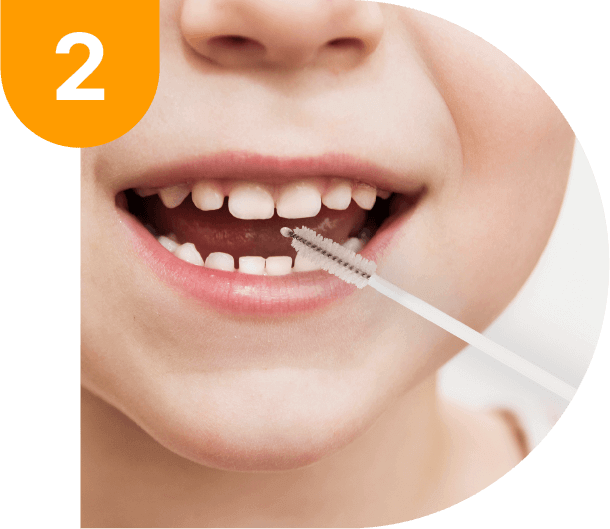
Collect DNA Samples
Follow the detailed, step-by-step instructions to collect DNA samples using the provided mouth swabs.
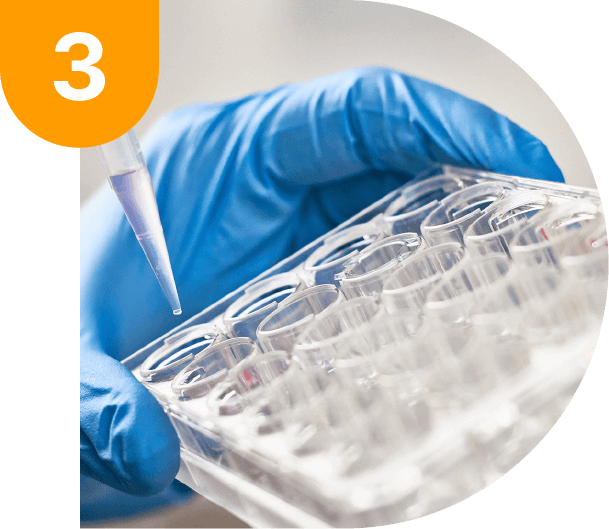
Lab Analysis
Use the provided return envelope to mail your DNA samples to our laboratory for analysis.

Receive Results
Download your results from your secure online account as soon as they’re ready.
Signs of a blood clot
Many factors contribute towards thrombotic risk, including a lack of mobility, smoking, obesity, surgery or injury, infections and disease, pregnancy, and hormonal changes.
However, “invisible” factors such as genetic changes that affect components of the blood clotting cascade also play a big role in your thrombotic risk.
Factor V Leiden mutation:
Factor V is a protein that promotes blood clotting. When it is not required, it is inactivated by protein C. The factor V Leiden mutation inhibits this inactivation, increasing the risk of abnormal blood clots.
Prothrombin G20210A mutation:
Prothrombin is another protein required for blood clot formation. In individuals carrying the G20210A variant in this gene there is an increase in prothrombin production, leading to an increased risk of abnormal blood clotting.
MTHFR mutations:
The MTHFR gene gives instructions to produce an enzyme involved in the conversion of folic acid to folate, which then helps convert homocysteine to methionine. Two MTHFR variants are linked to elevated homocysteine levels, known as hyperhomocysteinemia. Hyperhomocysteinemia increases the risk of abnormal blood clots.
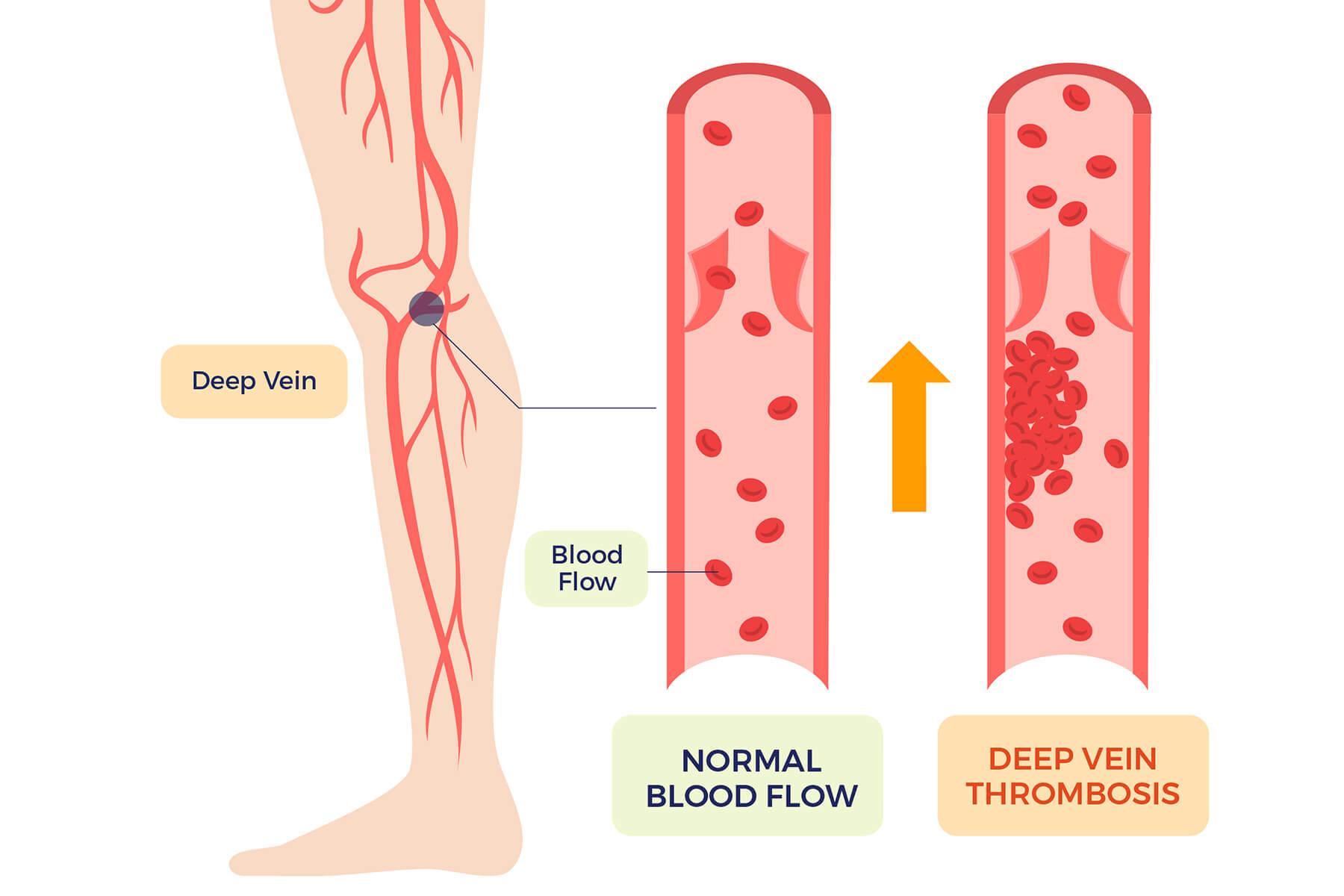
Genetic Variants Analyzed
This test examines key genetic variants related to thrombophilia:
- F5 – Factor V Leiden mutation (1691G>A)
- F2 – Prothrombin mutation (20210G>A)
- MTHFR – Two mutations (677C>T and 1298A>C)
Each person inherits two copies of these genes—one from each parent. Possible genetic combinations include two normal copies (homozygous normal), two mutated copies (homozygous mutant), or one normal and one mutated copy (heterozygous). The specific combination of F5, F2, and MTHFR variants determines an individual’s risk for developing thrombophilia.
Understanding Your Results
-
Factor V Leiden Mutation (Heterozygous 1691G>A) – F5 Gene
- 3X to 8X increased risk of thrombosis
- 2X to 11X increased risk of miscarriage
-
Factor V Leiden Mutation (Homozygous 1691G>A) – F5 Gene
- 10X to 80X increased risk of thrombosis
- 2X to 11X increased risk of miscarriage
-
Prothrombin Mutation (Heterozygous 20210G>A) – F2 Gene
- 2X to 5X increased risk of thrombosis
- 2X to 3X increased risk of miscarriage
-
Prothrombin Mutation (Homozygous 20210G>A) – F2 Gene
- >5X increased risk of thrombosis
- 2X to 3X increased risk of miscarriage
-
MTHFR Mutation (Homozygous 677C>T)
- Increased risk of thrombosis if folate levels are low
-
MTHFR Mutations (677C>T and 1298A>C)
- Increased risk of thrombosis if folate levels are low
Frequently Asked Questions
Once your sample is received by our laboratory, processing usually takes 6-8 weeks. You will receive an email notification when your results are ready, and you can access your detailed report through a secure online portal.
We take data privacy seriously. Your results are confidential and only shared with you. We do not share your results with insurance companies, employers, or any other third parties.
Why DNA Tests Direct?
Accredited Excellence
Your Privacy, Protected
Expert Support
Shop Related Tests
CA$129
Variation in the APOE gene is one of the strongest genetic risk factors for cardiovascular disease. It also affects how well you respond to statins and dietary changes used to modify your risk. Are you at increased risk?
CA$89
Understand your body’s unique ability to break down lactose, a sugar found in dairy products. Our easy-to-use test analyzes your DNA for key genetic markers associated with lactose tolerance and intolerance.
CA$195
Discover the probability of a biological relationship between potential grandparents and their grandchild.
CA$195
Determine the likelihood that two individuals are full siblings, half siblings, or not siblings at all.
CA$195
Find out the likelihood that two people are biologically related as first cousins.
CA$395
Establish legal mother-child biological relationships. Court-admissible maternity tests for adoption, surrogacy, IVF & legal cases.
